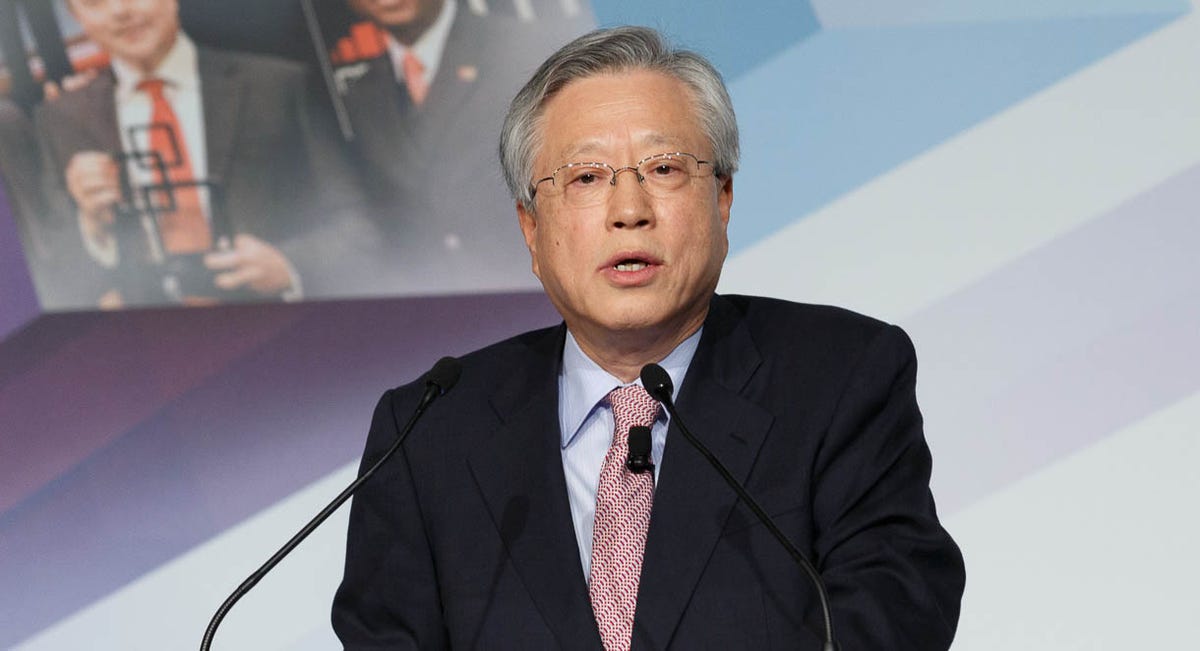BARCELONA, Spain–Carriers love to bash companies like Skype and WhatsApp that provide services on top of their mobile networks at the Mobile World Congress trade show. But one thing was different this year: Viber Media founder and Chief Executive Talmon Marco entered the lion’s den to defend the idea.
Viber‘s free messaging service, which competes directly with carriers’ own high-profit services for text- and multimedia-messaging services, is a prime example of the despised over-the-top (OTT) approach. Marco showed no remorse for sapping telco revenues and argued that users are just moving to where the innovative, useful services are taking place.
Related stories
- MWC 2022: How to Watch the Samsung Galaxy Book Reveal
- CES 2021: What to expect as the show goes all-digital
- Microsoft warns it might miss revenue guidance because of coronavirus
- Spending time with Huawei’s new Mate XS
- LG unveils new K series phones
“There’s no difference between the SMS of 1993 and 2013,” Marco said, whereas in the two years since its launch, Viber has added group messaging, delivery confirmation, indicators that the other person is typing, location sharing, and high-quality photos. “We delight our users with cool new features.”
He backed up his case with the example of Monaco, 90 percent of whose 35,000 population uses Viber — even though SMS is free in the country.
Marco spoke immediately after two telco chief executives, Deutsche Telekom’s Rene Obermann and KT’s Suk-Chae Lee, told of their unhappiness with OTT services. Carriers are held back by regulations that don’t apply to OTT providers, for example.
Obermann described how OTT companies see their relationship to carriers: “You invest, we take the profit.” He and his peers have been saying this for years at this show and others, but he thinks sooner or later something has to give.
“It’s not sustainable that the network makes all the investments and others just get a free ride,” he said.


Stephen Shankland/CNET
Lee said OTT services are bleeding away the business of KT, the largest mobile operator in South Korea, because it must invest more and more into its infrastructure but it doesn’t reap the rewards.
“In the last four years, KT revenue has stagnated, but capex [capital expenditure spending] has increased to $4 billion from $3 billion before,” he said. “The builders of this cyberspace, the telcos, may have to watch the space be dominated by the giant Internet players or the OTTs.”
That’s a stark contrast to Viber’s business. “Our whole infrastructure costs under $200,000 a month,” Marco said.
Marco suggested a path to reconciliation, though: partnership. He said he won’t pay the telcos for free services, but he’s willing to share revenue for paid services.
“We’re definitely prepared to share revenues when we charge users,” Marco said.


Stephen Shankland/CNET
Already Viber pays a percentage of its revenue to the app stores that distribute his company’s app, but a carrier could step in and do the distribution, too. “That’s 30 percent of our future revenues up for grabs by carrier. Come and take it,” Marco said.
Obermann seemed open to the idea, pointing to a partnership Deutsche Telekom has with music-streaming service Spotify.
“We have a revenue share,” Obermann said. “Users love it, and we have growing number of subscribers.”
Lee sounded more skeptical. OTT companies, in the long run, hurt economies that are increasingly dependent on the Internet.
“Nobody can stop OTT,” he said. “The question is, if it creates an economic cost burden to society, then somebody must take the burden.”



